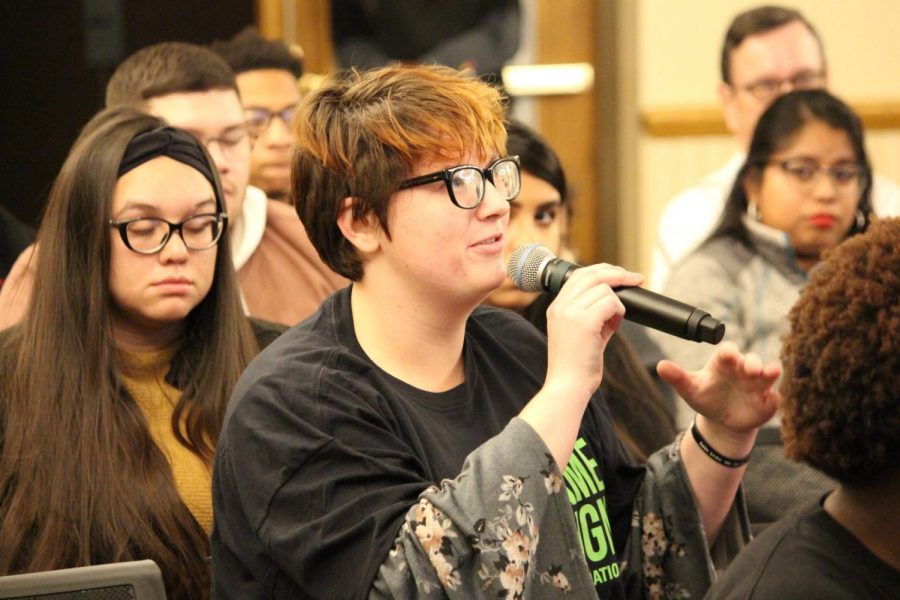Mental health event helps “break the stigma”
Graduate teaching assistant Kelsey William speaks her opinion on how learning to understand others with mental health issues can lead to more comfortable conversations.
October 26, 2017
DeKALB — During a No Shame Campaign event, students confronted the ways in which mental illness carries stigmas that sometimes are magnified for minority communities as a result of cultural stereotypes.
The event, called Family Matters, was hosted by the Student Association as part of their No Shame Campaign, which aims to bring awareness to mental health issues on campus. Topics of mental illness and suicide were highlighted during the presentation, which was held Monday in the Holmes Student Center, Sky Room. Also discussed were the different barriers and burdens minority college students face.
The SA, Phi Beta Sigma Fraternity, Inc., Zeta Phi Beta Sorority Inc., Sigma Lambda Beta and Sigma Lambda Gamma hosted the event, and members from all organizations spoke.
The presentation incorporated several aspects of interactive discussion by questioning the crowd about which stigmas they are aware of and what kinds of coping mechanisms people turn to while dealing with a mental illness.
“All cultures share similar stigmas of mental health,” said SA Senate Speaker Christine Wang. ”It is seen as a weakness to seek help.”
Shamira Williams, freshman non-governmental organization studies major, said her struggles with mental health have been suggested to be curable through religion.
“Anytime I mentioned having depression [my mother] just be like ‘why are you claiming that? That’s the devil, and maybe you need to be more involved in church,’ ” Shamira said.
Wang shared some personal experiences with the stigmas she faced in her family when confronting her own mental illness.
“Essentially, mental illness doesn’t exist in Eastern cultures, at least in my experience,” Wang said. “It’s just not something you talk about. It’s not something that is seen as honorable; it’s seen as shameful, and so you hide that.”
Audience members joined the discussion by speaking about some of the different coping mechanisms they turn to when dealing with mental illness.
“People really do use unhealthy coping mechanisms like sex, drugs, or alcohol to deal with these issues,” Wang said. “And those are so incredibly unhealthy and put you in a vicious cycle, and it needs to be broken.”
Resources on campus that provide free assistance, such as Counseling and Consultation Services, are available to aid students when coping with some of these issues.
Graduate teaching assistant Kelsey Williams said it helped her to understand mental health issues when her friends who experience them spoke openly about them.
“If you’re not ready to talk to other people about it, try to learn more for your own sake and find people you are comfortable sharing with,” Williams said. “And if you ever can get to that point and it’s something you want to do, talk to anyone who will listen about it.”
Shamira said she thinks it’s important to have mental health events on campus because talking about the issues students cope with helps to raise awareness.
“I’m just so proud of everybody and how they pulled this together, and I was just happy to see that they’re trying to break the stigma because so many people struggle with mental health issues, but they don’t know how to talk about it, so this gives them an idea,” Shamira said.







